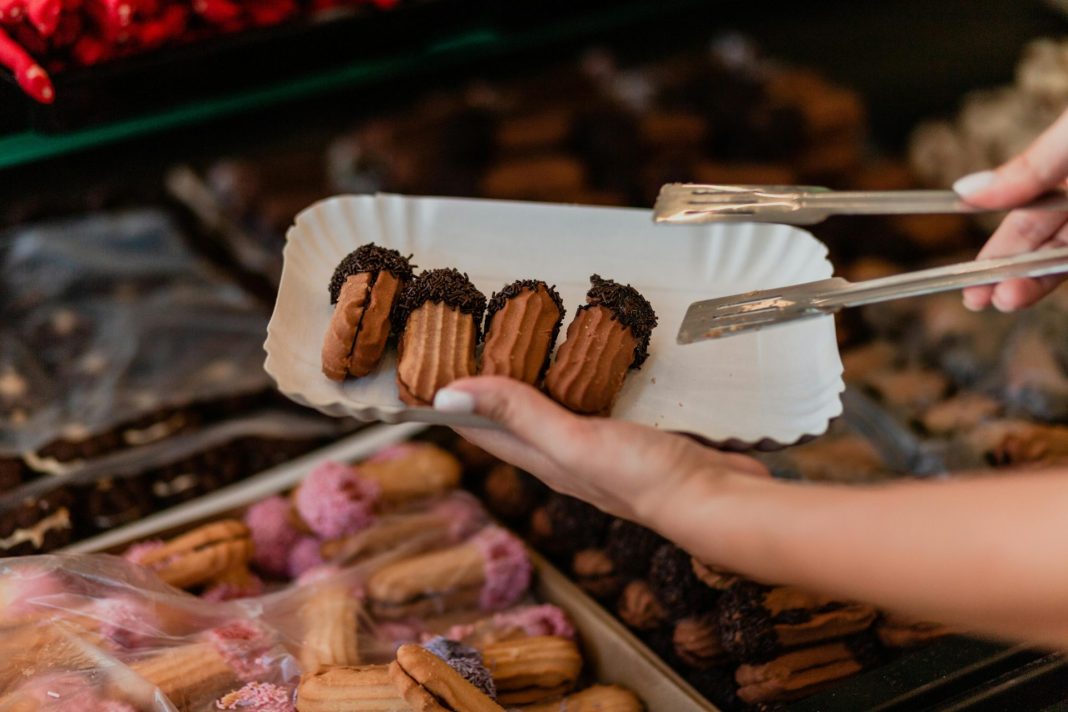I can’t walk past the Covered Market without feeling inexplicably drawn to Moo-Moo’s. The array of servers at Knoops have my order memorised. Even the staff at Fuwa Fuwa have begun to greet me with “lovely to see you again”.
I would definitely consider myself at least partly addicted to sugar, or at least the concept of sweetness. But aren’t we all? In a city where boba shops seem to be multiplying by the hour and JCRs keep churning out new excuses to supply sugary freebies, there’s definitely enough demand. If you’ve managed to avoid a dependent relationship with this everyday drug at Oxford, then I applaud you: you’re a stronger soldier than me.
What started as an innocent addition to the revision experience soon became a diehard dependency. I began to associate essay-writing so strongly with sipping sticky gloop that I eventually couldn’t revise at all without the support of a sugar IV. I knew all too well how unhealthy this was, but I was too far gone to stop. I think I went to Costa more than I entered a library. Somehow, I had trained my brain to believe a sweet treat was indispensable for the revision experience, as necessary as pen and paper. It was bad.
I wish I could tell you my sugar dependency was a past fancy, a silly habit of a silly fresher, but I shudder to admit that it has only accelerated in my third year. For reference, in Hilary, my housemate was thoroughly shocked to walk in on me eating fruit for the first time in our months of living together. Fruit contains what I consider ‘healthy’ sugars and thus obviously doesn’t count.
I gave up fizzy drinks in plastic bottles for Lent in the hopes it’d reduce my sugar intake. However, I desperately found solace in an alternative evil: fizzy drinks in cans. At least I’m consuming fewer microplastics? These days, if I’m not devouring can after can of Dr Pepper Zero, I’m planning a trip to the Lindt chocolate museum.
I’ll get a Knoops on Monday, a MooMoo’s on Wednesday, and, if I’m feeling particularly adventurous, I’ll even venture out to Costa for an iced tiramisu whipped latte on Friday. I started going to libraries more often this year too, as soon as I discovered I could bring sugar into the Old Bod as long as it’s protected in a KeepCup.
Yes, these drinks do often make me feel slightly nauseous and cause my heart to beat like it has just survived a particularly tremulous circuit in a Regent’s Park College tumble dryer. But pain and adrenaline are staples of the uni experience, right?
Alongside the impact on my health, my sugar obsession has a more obvious impact elsewhere: my wallet. Let’s do the maths: if a sugary drink costs approximately £5 and I have around five sweet treats a week, that’s £25 spent willingly poisoning myself. That’s £200 in a term. £200 that could buy me so many things: a new laptop, a plane ticket, my own lightsaber. But I invariably choose instant gratification.
So why does sugar have me in such a chokehold? I think many use the burst of energy it provides to replace caffeine. Sweet treats are also romanticised on social media. Celebrities endorse sugary drinks they’ve definitely never tried themselves and images of teenage girls solving algebra problems with an iced matcha swarm Pinterest and Instagram.
I recently started following a YouTuber whose entire brand depends on her ability to chug sugar and caffeine to survive all-nighters. I find her videos fascinating and, dare I say, inspirational? There’s something intoxicating about watching her consume a ridiculous amount of sugar whilst studying for hours on end. I’ve even considered replicating her efforts, but my desire for rest and relaxation always triumphs in the end.
Maybe graduating will alleviate this dependency – perhaps, even, I’ll evolve into someone who only drinks water, sugarless tea, and makes smoothies in my very real blender. Maybe.


